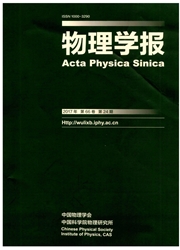

 中文摘要:
中文摘要:
利用分子动力学方法研究了正化学比的TiAl/Ti3Al双相体系中剪切变形诱发位错形核以及相关结构转变的动态过程以及切变力场对最终结构的影响.研究发现,在TiAl/Ti3Al双相体系中剪切变形诱发黏滞.滑移式的滑移行为;界面在其中起到了传递能量、均衡协变的作用,界面两侧的异相结构保留了单相形变特征.六角密堆积(HCP)-Ti3Al部分各原子层较长时间内呈整体剪切协变,其后形变分化为应力集中诱发层错区和初始完整结构回复区;而面心立方(FCC)-TiAl部分因刚性较大仅存在微协变,其后局部受力区直接诱发相邻原子层间相对滑移,发生FCC向HCP结构转变.变形结构方面,HCP-Ti3Al部分在剪切力较大区域形成连续且稳定的FCC堆垛,近界面区FCC薄层与HCP相交替并存;而FCC-TiAl部分内禀层错和孪晶共存,当力场增大时形成亚稳HCP结构.
 英文摘要:
英文摘要:
The dynamical shear deformation induced hexagonal close-packed (HCP)←→ face-centred cubic (FCC) processes in TiAl/Ti3Al system are investigated by the molecular dynamics method. The details of the dislocation initiation, the microstructure evolution and the force field effect are presented and discussed. The analyses of the potential variation and the structural snapshots show that the shear deformation is related to the "stick-slip" behaviour. The interface can transit the energy and counterpoise the deformation between the hetero-phases. The HCP-Ti3Al (FCC-TiAl) shows obvious (little) covariant deformation stage before the initiation of the fault transition. For HCP-Ti3 Al, the final structure is the continued FCC stacking in a region with the large force field, and the FCC and HCP plates alternatively occur near the interface. For FCC-TiAl, twin and SISF are the main remnants, and the meta-stable HCP phase may occur with the increment of the force field.
 同期刊论文项目
同期刊论文项目
 同项目期刊论文
同项目期刊论文
 Deformation-induced gamma -> DI-alpha(2) phase transformation occurring in the twin-intersection reg
Deformation-induced gamma -> DI-alpha(2) phase transformation occurring in the twin-intersection reg 期刊信息
期刊信息
